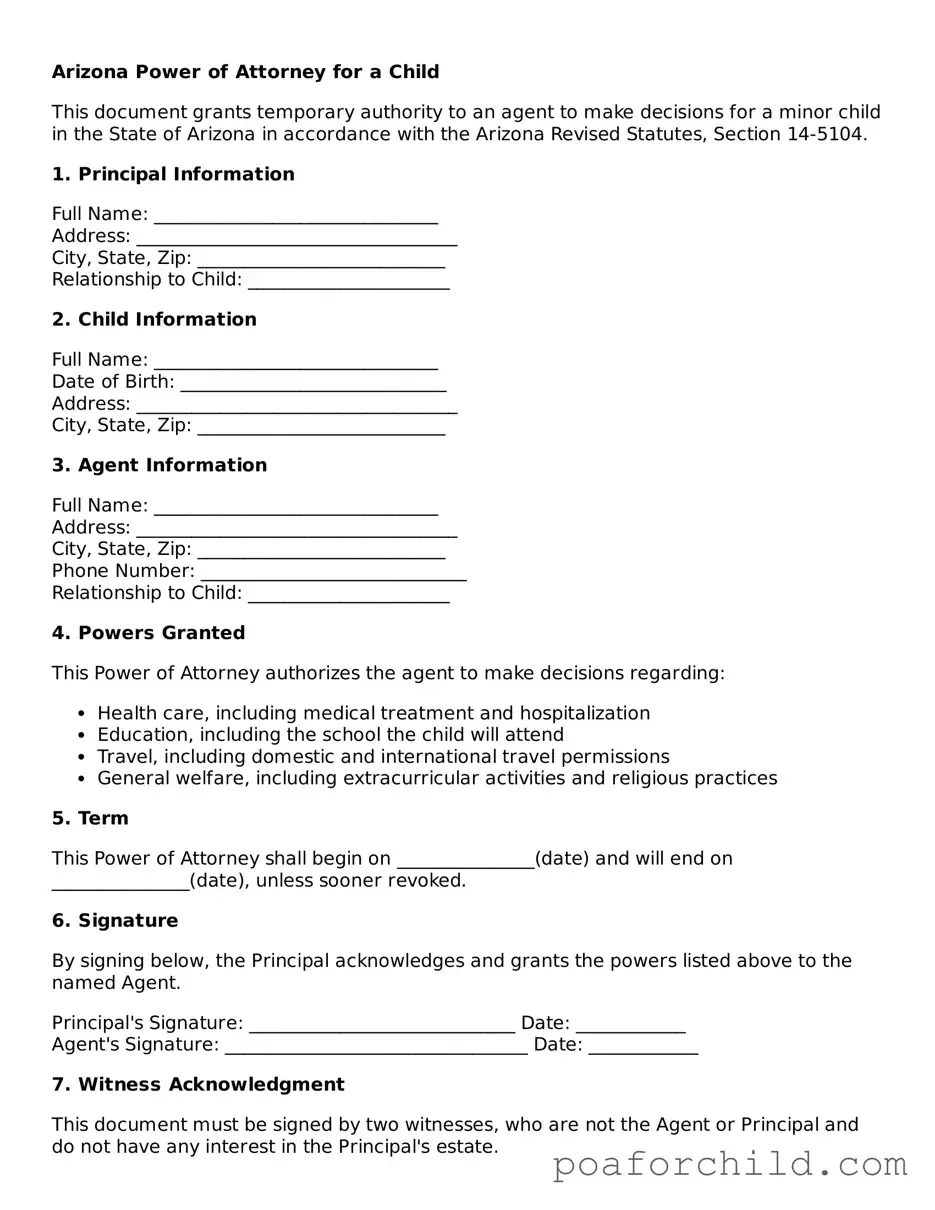Detailed Guide for Using Arizona Power of Attorney for a Child
Completing the Arizona Power of Attorney (POA) for a Child form enables parents or guardians to grant temporary decision-making authority over their child to another trusted adult. This arrangement can be particularly useful during periods when parents or guardians are unavailable due to travel, illness, or other commitments. The POA grants the appointed agent the power to make decisions regarding the child's healthcare, education, and general welfare. It’s crucial to fill out this form accurately to ensure the child’s needs are met and protected in the parent's or guardian's absence. Follow these steps to properly fill out the form.
- Begin by reading the entire form carefully to understand all the requirements and provisions.
- In the designated section at the top, enter the full legal names of the parent(s) or current guardian(s) granting the power of attorney, along with their contact information.
- Identify and provide the full legal name and contact information of the person being appointed as the agent.
- Specify the full name and date of birth of the child or children for whom the power of attorney is being granted. If the form allows for multiple children, ensure all relevant information is included for each child.
- Detail the specific powers being granted to the agent. This might include decisions regarding the child’s education, medical care, or general welfare. Some forms may have checkboxes or specific sections for different types of decisions.
- Check if the form requires the specification of the duration for which the power of attorney will be effective. If so, include the start and end dates. Some forms may default to a maximum duration as allowed by state law if dates are not specified.
- Look for a section that addresses how the power of attorney can be revoked by the parent(s) or guardian(s) should the need arise. Instructions for revocation should be clearly noted.
- Ensure all parties involved sign and date the form in the designated areas. Depending on state requirements, the form may also need to be notarized or witnessed to be legally valid.
Once the Arizona Power of Attorney for a Child form is completed and signed, it’s important to distribute copies accordingly. The appointed agent should receive a copy, as should any institutions or individuals (such as schools or healthcare providers) that will require proof of the agent's authority. Keeping a copy for personal records is also recommended. Remember, this form can be revoked at any time by the parent or legal guardian, provided proper legal steps are followed to ensure all parties are notified of the revocation. Proper completion and handling of this document ensure the child's safety and well-being during the parent’s or guardian's absence.
